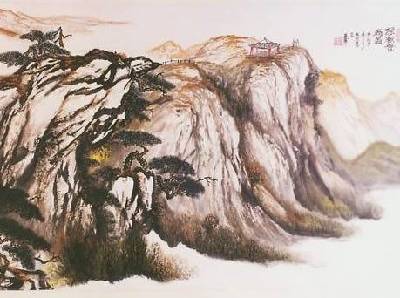
It is said that one prototype of Double Ninth Festival (Chongyang Festival) can be found in the ancient sacrifices to the god of fire.
The star Dahuo, the principal star of Scorpio and an indicator of the seasons in ancient China, disappears in autumn. This was called the “Neihuo (endogenous fire) of Autumn” in Xia Xiao Zheng (ephemeris of Xia Dynasty). With the disappearance of Dahua, the ancient people lost an important guide for production and life. Those who worshipped the god of fire feared to see this phenomenon. The dormancy of the star meant a long winter was arriving. When it appeared, there would be welcoming rites; when it disappeared, there would be send-off rites in the season of “Neihuo.” On the Double Ninth Day, there are still customs to sacrifice to the kitchen god, the god of fire living in people’s houses, in the southern areas of the Yangtze River. The Double Ninth Festival corresponds to Shangsi (March 3) and Hanshi (April 4) as the festival of seasons. In the Collection of Xijing, Liu Xin of Han Dynasty recorded that “in March 3 and September, 9, there were sacrificial rites and people went to climb the heights.” The correspondence between the Shangsi, Hanshi and Chongyang aligns itself with the revolution of the Dahuo.
With advances in technology to make life worth living, people developed a new understanding of time, and the "Fire Calendar" gave way to the general calendar. Sacrifices to the fire god declined. But of course, people are still sensitive to the change of nature caused by the attenuation of the Yang. Therefore, the custom of climbing heights is still followed today.
Thoughtful people have another explanation for this. In folk life, the Double Ninth Festival is the line dividing the summer and winter. If Shangsi and Hanshi are the seasons for people to get out after the long winter, then the Double Ninth Festival is a good time for them to go for a walk before they retreat from the cold winter. The Double Ninth Festival is formed through people’s feelings about the change in the seasons.
Source: www.baidu.com
Translated by Zhang Min


